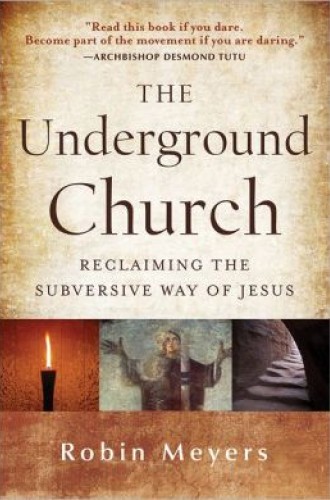The Underground Church, by Robin Meyers
The whole time I was reading Robin Meyers’s The Underground Church, I couldn’t shake the presence of Old Testament scholar Walter Brueggemann, and I kept trying to figure out why I kept writing “WB” (Walter Brueggemann) as often as “NB” (nota bene).
The goal of The Underground Church is to wake up the church to its primal calling to be radical and therefore dangerous, to be edgy, powerful love-in-motion. Meyers’s prose helps him achieve his objective, for it is itself dangerous and edgy and powerful. In the book, Meyers faces off against trammeling myths of and within the Christian tradition, against the suffocating security of a safely played faith, and against the “pleasantification” of what is, at root, a movement of protest. The effect, Meyers hopes, is that a religion of recited creeds will become instead—or rather, become again—a religion of impassioned trust in the way of Jesus.
This way, believes Meyers, invites people into a habit of radical encouragement, love, patience and boundary breaking, habits of mind and heart that bear upon the church, upon the family and upon the affairs in the world at large.





